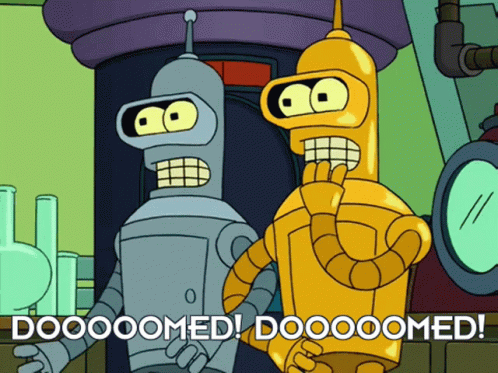Mh, kinda feeling it myself - enjoying sci-fi of the more speculative kind requires you to have some investment into the (possible) future, and most of the younger generations are pretty much burnt out. It’s not so much fun watching/reading Mad Max when it’s technically just a slightly edgy take on the world in 20 minutes.
I’d also say that outside of established franchises, sci fi is mostly dead in games. The space sim has for years been in the hands of indie developers (I’m not counting whatever Roberts has been cooking for the last decade as an earnest effort to actually put out a game), the Mass Effect franchise came and went, and the rest of the suspects are the usual evergreen licenses with an established fandom behind it. Like, say, Aliens or Waaaaagh!Hamster 40K.
Sure, there’s the occasional scifi backdrop in games, and certainly, there’s a few good novels as well, but I feel the genre itself is in a lull. Nobody seems too interested in a far flung future anymore, and actual “speculative” science fiction has become kinda hard when technology advances at an uncomfortable pace and threatens to put you out of a job and/or make everything even less enjoyable.
Besides that, there seems to be little optimism left in the genre - the last iterations of the former gay luxury space communism setting were downright cynical takes on the Federation and the Prime Directive.
Besides the intricacies of writing scifi (except for the most wibbly wobbly of sci-fantasy settings, the usual “a wizard did it” just doesn’t cut it if you want to suspend some disbelief), there’s the pesky worldbuilding (one world is NOT enough…), tired tropes (planet of hats, mono-biome planets, eh, basically “Star Wars with the serial numbers more or less filed off”) and those awful politics that a substantial amount of morons people are vehemently opposed to. Doesn’t help that media literacy seem to not-so-slowly go the way of the dodo.
I’d wager that in these shitty times, it’s a LOT easier to sell some good old fantasy escapism, where men are men, dwarves are dwarves, and plots are heroic-yet-predictable and not foiled by the latest advances in technology. Throw in a colourful cast of horny bastards (looking at you here, Baldur’s Gate 3…), and you got a fantasy stew going.
Sure, as a writer, you can see beyond the set dressing and recognize the same themes in a different packaging, but it’s the packaging that sells, not so much the themes contained within.
